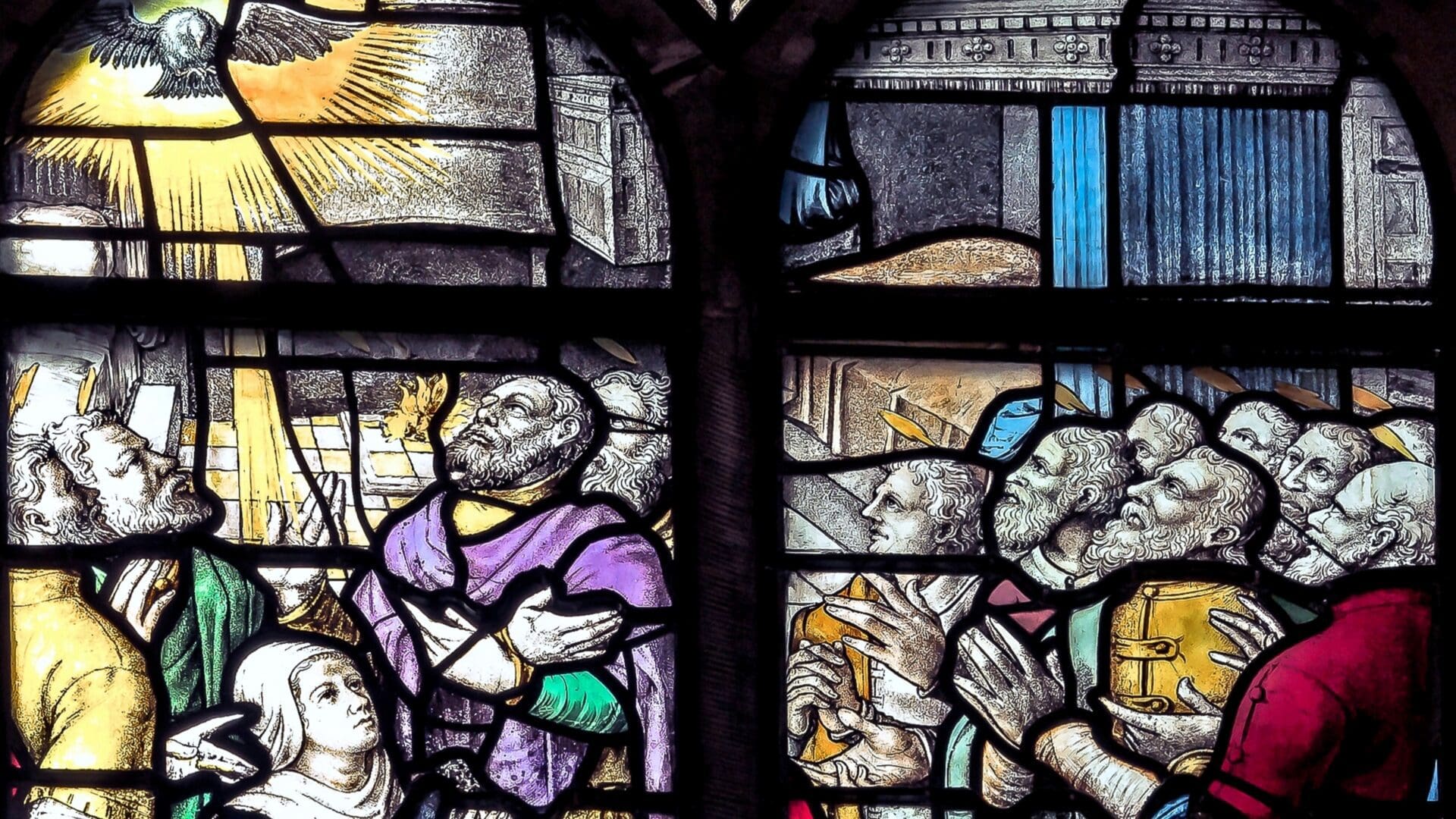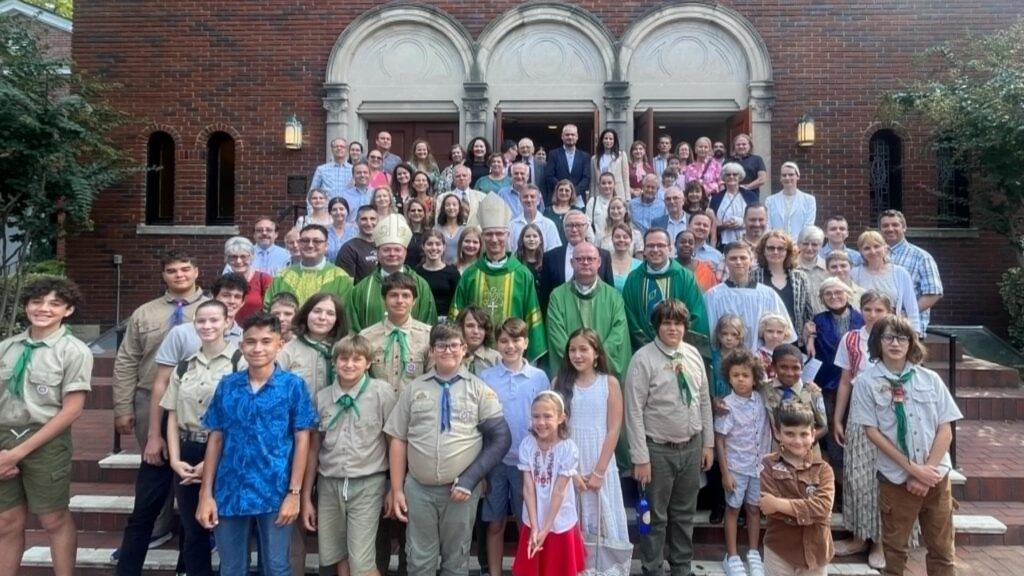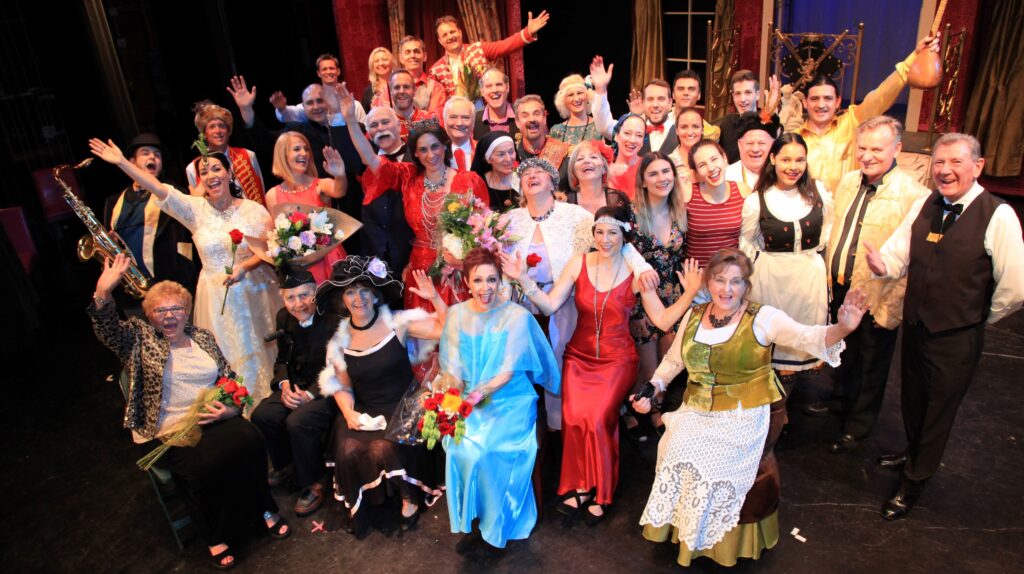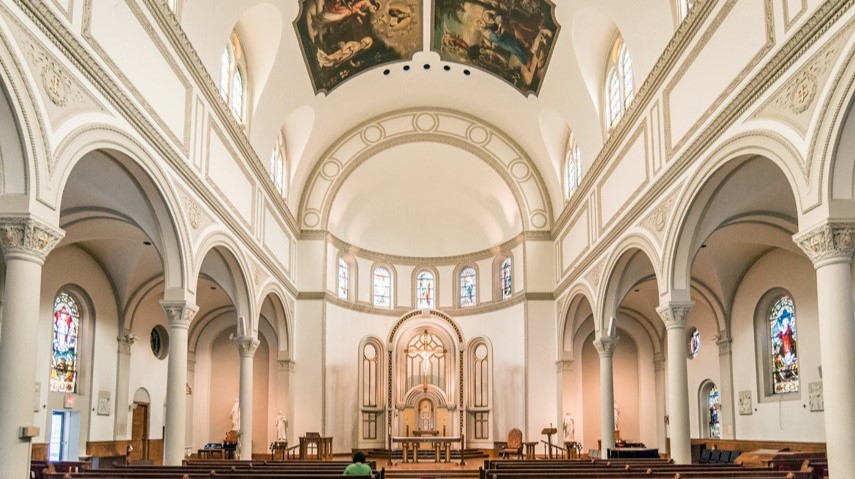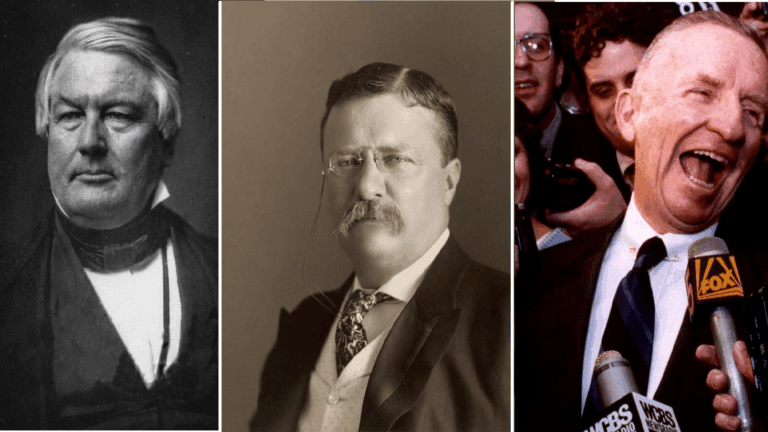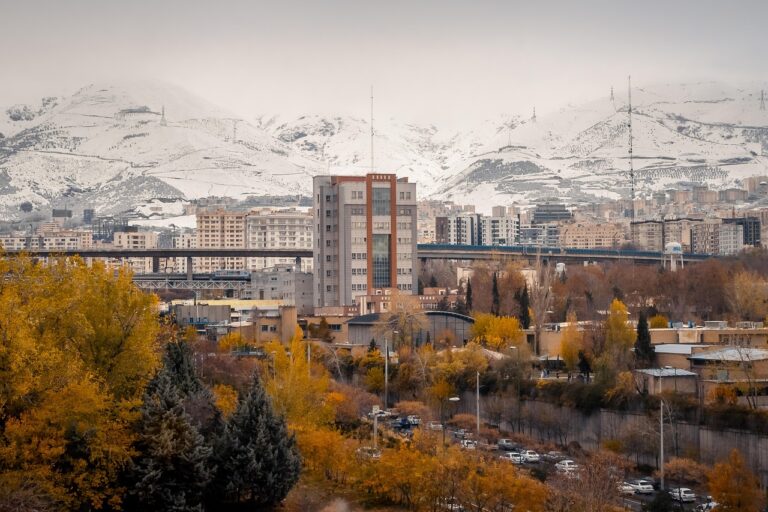‘When the day of Pentecost came, [the Apostles and Mary the mother of Jesus] were all together in one place. Suddenly a sound like the blowing of a violent wind came from heaven and filled the whole house where they were sitting. They saw what seemed to be tongues of fire that separated and came to rest on each of them. All of them were filled with the Holy Ghost and began to speak in other tongues as the Spirit enabled them.’ (Acts 1, 14; 2, 1-4)
Such was the occasion on Pentecost Sunday, the fifty days after Easter Sunday—ten days after Jesus Christ ascended back to the Father (Acts 1, 9)—when the Apostles, who were in the upper room, received the Holy Ghost as Christ had predicted. (John 14, 16-7) This was necessary so that they would have the gifts to fully understand their mission and carry on Christ’s message: ‘Go, therefore, make disciples of all nations, baptising them in the name of the Father, and the Son, and of the Holy Spirit, teaching them to observe all that I have commanded you.’ (Matthew 28, 19-20)
There were also ‘devout Jews of every nation under heaven’ who all understood the words of the Apostles ‘each one heard these men speaking his own language’. (Acts 2, 5-6) Pentecost Sunday, therefore, marks the ‘official’ beginning of the Church.
The Original Concept of Pentecost
Originally, (the Jewish) Pentecost (Shavuot) was the celebration of the ‘Festival of Harvest’ (Exodus 23, 16), to commemorate the single most important event in Israel’s history: the giving of the Torah (the first five books in the Old Testament, also called the Pentateuch) by God to Moses on Mount Sinai. It is one of the three major festivals often called ‘pilgrim’ festivals which in Biblical times, all Jewish males were required to observe them at the Holy Temple in Jerusalem. Sheaves of barley (the winter crop), for example, were brought to the Temple each day, beginning on the Passover until Shavuot; the beginning of the harvest season fifty days later.
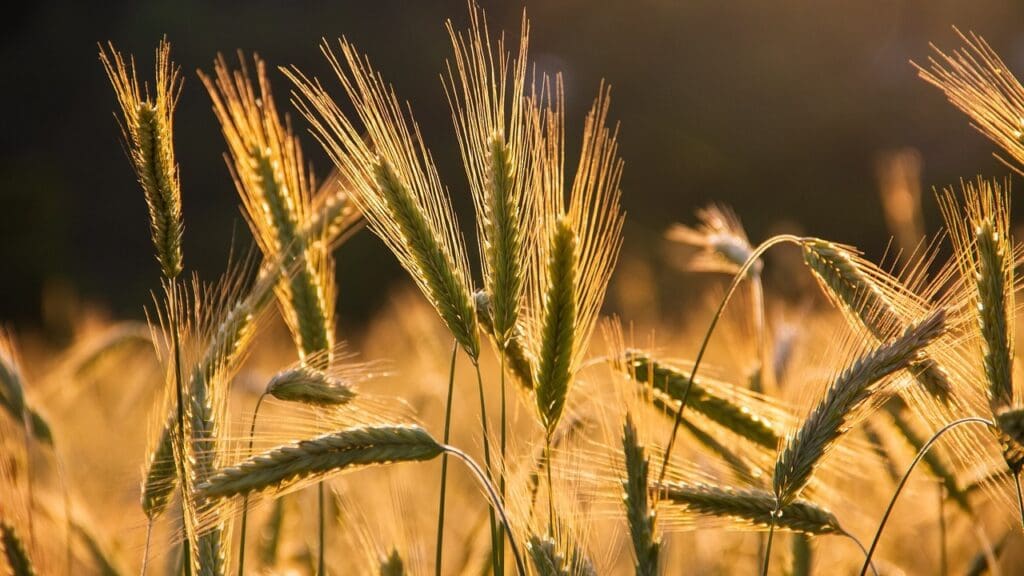
For the Hebrews, the Shavout had thus become the feast marking the closure the aforementioned covenant on Mount Sinai. In wind and fire,[1] God made his presence known to the Israelites and then gave them the gift of His Law, the Ten Commandments.
Devotional and Folkloric Hungarian Traditions
On Pentecost Sunday, for over four-hundred-fifty years, Hungarian pilgrims have been travelling to Csíksomlyó, in the heart of Transylvania (modern-day Romania), to honour the miraculous Virgin Mary statue.
There are no written accounts of the statue’s construction and history, but judging by its style it is a Central-European Renaissance work, carved of linden wood, coated with plaster and paint, that has been restored several times over the centuries. It depicts a woman clothed with the sun, with the moon under her feet, her head surrounded by a wreath of twelve stars, with her right hand holding a sceptre, and her left holding the Infant Jesus. According to believers, the Virgin Mary has performed many miracles for them over the centuries.
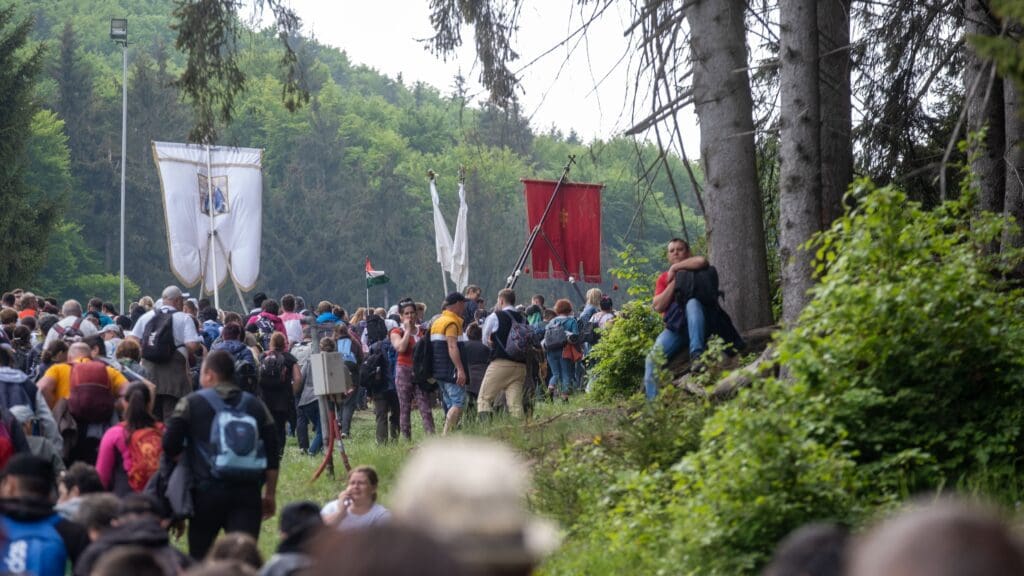
Pentecost Sunday in Hungary, aside the Christian elements, is also a time to celebrate the arrival of spring weather—quite similar to the Jewish ‘Festival of Harvest’. And there are also certain carry-over traditions from pre-Christian times, such as:
flowers and green branches are put around the edges of windows and in fences, often the Jasmine or the Pentecost rose, in order to prevent getting struck by a bolt of lightening;
young men sometimes put a Pentecost rose in the window of a young lady, and young girls may give a wreath they have made to a young man. Some suitors also give a lady a basket full of scones, along with some wine, and hope to receive a basket in return. There may also be balls held on Pentecost to facilitate the courting.
Also, since the Middle Ages, in many regions of Europe, a ‘King of Pentecost’ was elected. The winner of a horse-race or the best performing man of a competition requiring different skills became the king. He gets to attend virtually all weddings and parties throughout the coming year and to drink free of charge at the local pubs.
In yet a more folkloric Hungarian tradition, five young girls would march around the village, door-to-door, singing joyfully. The youngest and most beautiful girl was led by four others: she was the Pentecost Queen. Carrying a basket of flowers, the Queen wore a white dress and a flower crown on the top of her head. A red shawl or veil was to cover the little girl’s head. The group would then sing a fertility charm and dance around the queen, lifting her in the end.
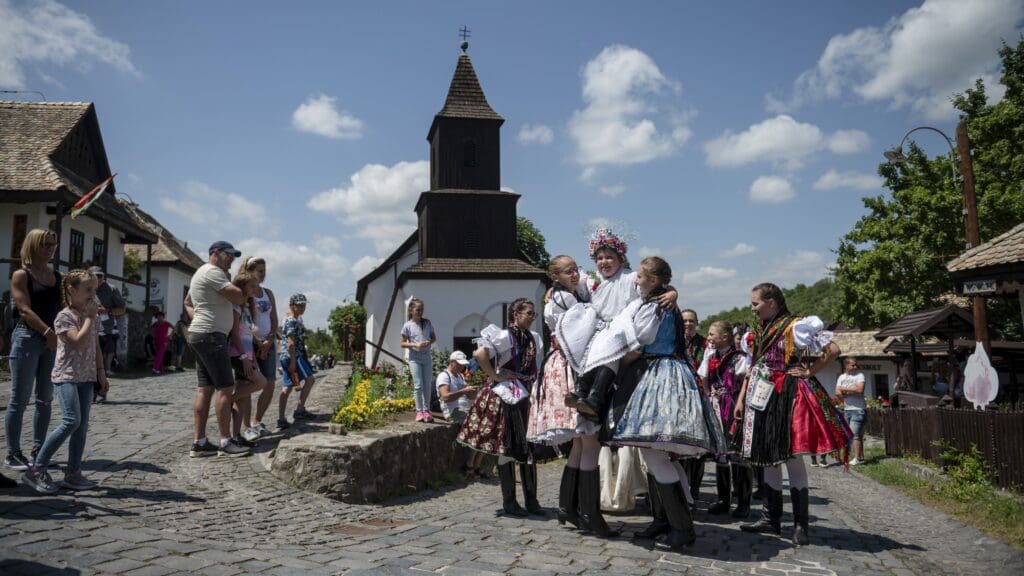
The Constant Pentecost Message
God’s ‘chosen People’ (Deuteronomy 7, 6) who entered the covenant on Mt Sinai, now becomes enlarged to the point of recognising no limitations, i.e., it is no longer the ‘chosen People’ but the we are all now ‘called children of God’ through through faith in Jesus Christ, which results in spiritual rebirth: ‘But to all who received Him, he gave the right to become sons of God; to those who believe in His name.’ (John 1, 12)
Hence, this ‘new chosen race’, we His children, the Church, is a people that derives from all peoples. The Church is catholic, meaning universal, from its inception and this is her deepest essence. This is why St Paul explains: ‘It was in one Spirit that all of us, whether Jew or Greek, slave or free, were baptised into one body. All of us have been given to drink of the one Spirit.’ (I Cor 12, 13).
‘Every time’, said Pope Benedict XVI during his homily on Pentecost Sunday in 2009, ‘we celebrate the Eucharist we live in faith the mystery that is fulfilled on the altar, that is, we take part in the supreme act of love that Christ accomplished with his death and Resurrection…. Pentecost is distinguished from all the Solemnities by its importance since what Jesus Himself had announced as the purpose of the whole of his mission on earth is brought about in it. Indeed, on his way up to Jerusalem he had declared to his disciples: ‘I came to cast fire upon the earth; and would that it were already kindled!’ (Luke 12, 49)
Let us not forget that we must continue to ‘renew the awareness of the responsibility that is connected with this gift: the Church’s responsibility to be, constitutionally, a sign and instrument of God’s peace for all peoples’. Yet we must do so through the intercession of the Blessed Virgin Mary. She, too, was with the Apostles in prayer, i.e., interceding for the Church in the upper chamber. Just like the example of St Stephen who, according to chronicles, not having a male heir to whom he could pass on his throne before his death in the year 1038, consecrated his kingdom to the Virgin Mary, asking her intercession not just for all Hungarians, but for his soul, too.
Happy feast day!
[1] According to the Exodus narrative, the covenant occurred during an awe-striking manifestation of power by God: ‘Mount Sinai was wrapped in smoke, because the Lord descended upon it in fire; and the smoke of it went up like the smoke of a kiln, and the whole mountain quaked greatly.’ (Exodus 19, 18)

